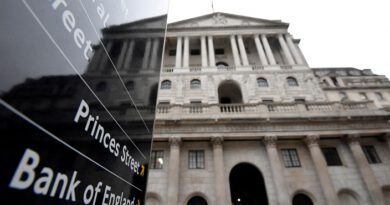SA’s long-term potential
There is no better example of government and business working together effectively than when we engage with the international business community. Last week’s World Economic Forum meetings were testament to this. Business leaders including BLSA board members Nedbank CEO Mike Brown, Standard Bank (and BLSA) chairperson Nonkululeko Nyembezi-Heita, and others made the case for South Africa alongside politicians like minister of international relations and cooperation Naledi Pandor and finance minister Enoch Godongwana.
They spoke about the long-term potential of South Africa and how we are working together to solve the challenges. The case is much stronger when politicians and business make the case together. Business leaders must make investment decisions every day. They are acutely aware of the risks and the cases both for and against. Politicians have it in their power to change policy and therefore influence the business environment, improving the investment case. By addressing global leaders from the same platform, we demonstrate our commitment to improving the business environment and the business case for investment.
This is not to ignore or downplay the problems we face as a country. From energy security to crime and corruption, they are serious and a major disincentive to invest. But we also know that solving these problems is going to require investment. Indeed, our energy challenges require billions of new investment, money that will need to be supplemented from abroad. If we can demonstrate the case that such investment will improve the business environment and the performance of our economy, the international community is ready to listen. They see that there are opportunities in the midst of the challenges. When business and government jointly make that case, investors hear it.
The other important signal we send to the world at such events is our willingness to work together. We demonstrate that through the act of sharing the stage at such events. This in itself is a positive indicator for investors, showing that business and government have common cause.
Of course, it is not a one-way conversation. The WEF is a forum to bring out issues of global concern. From war in Ukraine to climate change, world leaders are actively engaging with each other on how the world needs to pull together to deal with serious international challenges. While we tend to focus on our own problems, the WEF provides a clear lesson on the global context in which we find ourselves. It is an opportunity for our business and government delegations to face up to the global reality and how a country representing just 0.5% of global output must position itself.
That means there are lessons we need to bring back home. We also need to bring the spirit of cooperation between business and government back home.
Of course, we do not always see eye to eye. As readers of this letter know well, I can be very critical of government. But many counterparts in government want the same thing as us: a thriving and successful country. That has been much more the case recently, and there have been several important achievements from improving the institutions of the criminal justice system to the policies regarding the generation of electricity. We have also turned around government’s debt trajectory, fixing the debt spiral that three years ago posed an existential risk to the political economy. The wider economy, while overall still far weaker than it should be, has shown some strengths, particularly an unprecedented current account surplus over the last three years.
Our disagreements come down to how we can achieve it and the practical problems of implementation. Aligning and resolving these problems comes through dialogue. The long-term investment case for South Africa is clear when we show that dialogue is happening. We now need to work hard on achieving that dialogue and delivering change.
Busi Mavuso is CEO Business Leadership South Africa.
Source: moneyweb.co.za


